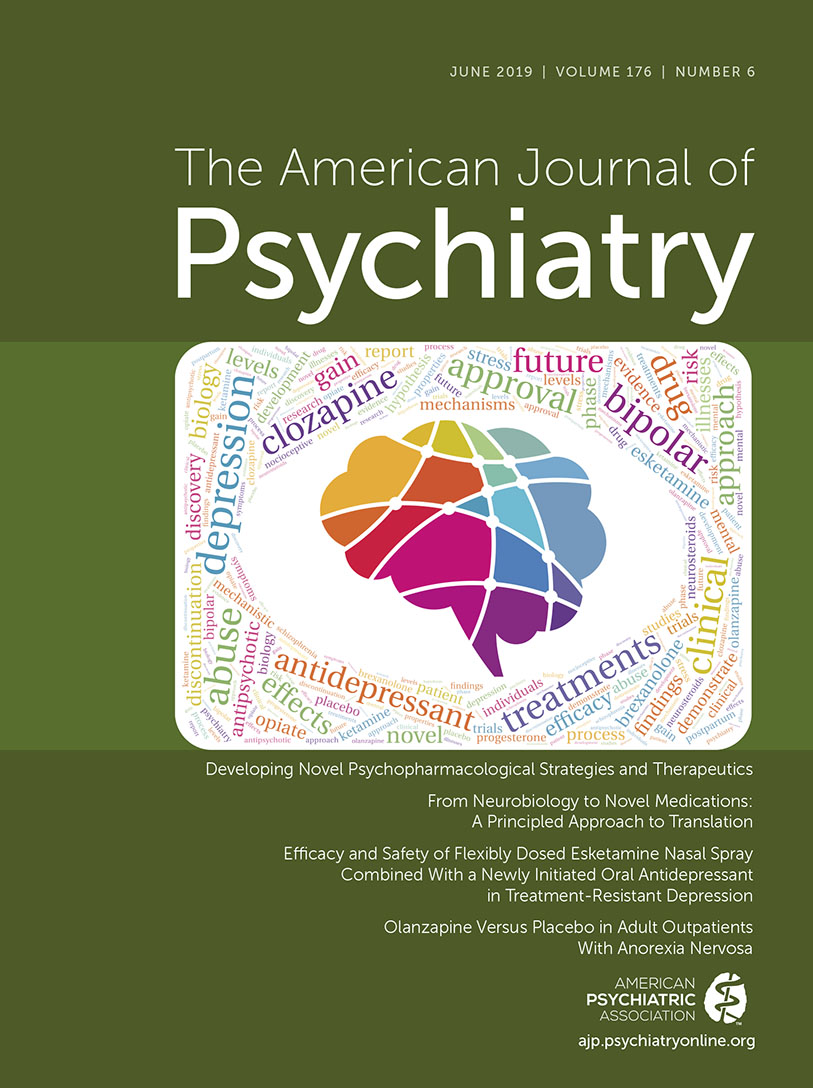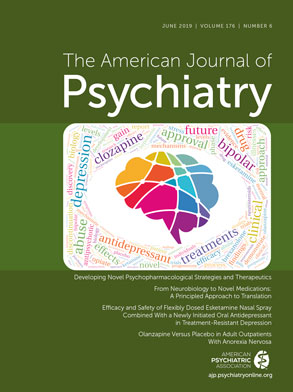T
o the E
ditor: Jha and associates (
1), in the December 2018 issue of the
Journal, addressed the clinical challenges that are entailed when discontinuing selective serotonin reuptake inhibitor (SSRI) medication. The authors cited a systematic review stating that “up to 40% of patients reported new-onset symptoms after abruptly discontinuing SSRIs” (
2). Actually, the review concluded that withdrawal syndromes are likely to occur with both abrupt and gradual tapering, without any significant advantage of the latter (
2). The idea that by slowly tapering we can avoid withdrawal syndromes is simply not supported by the literature, both in the case of SSRIs (
2) and serotonin-norepinephrine reuptake inhibitors (
3).
Important clinical challenges were not sufficiently emphasized by Jha et al. (
1). First, the duration of withdrawal syndromes is very variable. Symptoms typically ensue within a few days from discontinuation and last a few weeks. However, delayed occurrence and longer persistence of disturbances (months or years) may occur as well (i.e., postwithdrawal disorders) (
2–
4). Second, in addition to patient preference (
1), there are a number of clinical situations (side effects such as gastrointestinal symptoms or bleeding; pregnancy and breastfeeding; onset of hypomania or mania; lack or loss of efficacy; improved clinical conditions) that may suggest interruption (
4). Further, SSRIs interact with a number of medical drugs, such as anticoagulants and beta-blockers, and their discontinuation often requires readjustment of medical therapies and appropriate consultations. Finally, a basic disagreement with the recommendations of Jha et al. (
1) is whether we view withdrawal syndromes as isolated, self-limiting manifestations or as related to other clinical phenomena. According to the oppositional model of tolerance (
4), continued drug treatment may trigger processes that oppose the initial acute effects of a drug. When drug treatment ends, oppositional processes may operate for some time, resulting in appearance of withdrawal symptoms, resistance if treatment is reinstituted, and a more malignant and treatment-unresponsive course (
4), as was found to be the case in the clinical case presented (
1). We should be aware that by reintroducing the antidepressant that was initially used or by switching to another antidepressant to suppress clinical manifestations of withdrawal (
1), we are simply postponing, and most likely aggravating, the problem (
4). Discontinuing SSRIs is far more difficult than prescribing them. We absolutely need sound research on withdrawal phenomena related to antidepressant drugs and to redefine the use and indications of these medications, including their differential likelihood of inducing behavioral toxicity (
4).

